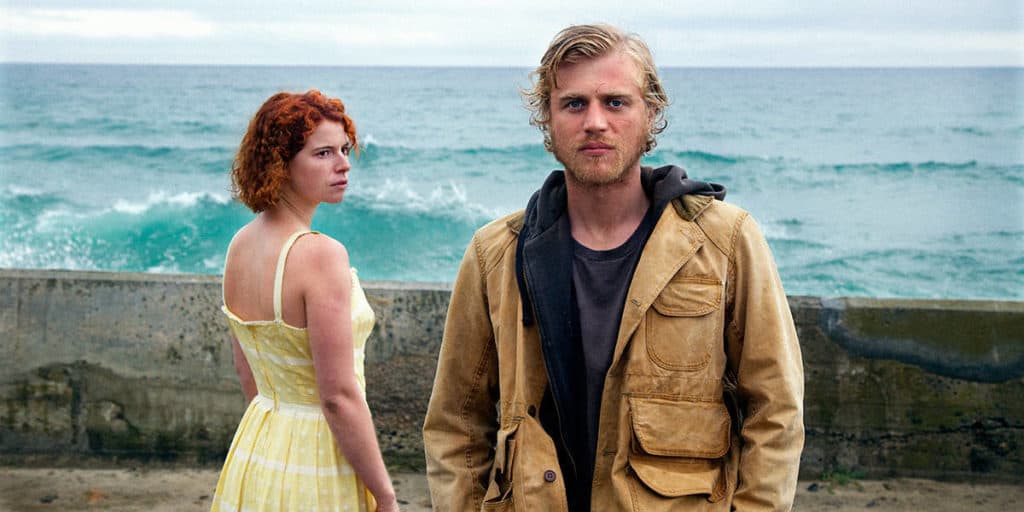
DIRECTED by: Michael Pearce
Michael Pearce’s debut feature, Beast, suffers from an awkward problem. The overall goal of the film is to create a dark, adult fairy tale about a woman suffering from a domineering family, obvious mental health issues, and a naiveté about the world and its dangers.
The first two acts of the film, though, run like a cross of Now Voyager and The Hunt with this woman’s romance positioned as lovers persecuted by a judgemental and unforgiving world. Jessie Buckley (playing the troubled young woman Moll) and her co-star Johnny Flynn (playing accused bad boy Pascal) are so convincing in their innocent, persecuted love that when the third act rolls around and things really go south, the shift feels forced and unwarranted.
So what’s a filmmaker to do when the film you wanted to make differs greatly from the film you actually ended up making? Any fair assessment has to acknowledge that Pearce does his best with this problem, especially for a first-time filmmaker. While the tonal confusion is distracting, what he does in each individual scene is remarkable. He leans into every fear, every rage, every passion; no emotions are left untapped or unexplored.
And it’s not just the cast doing the heavy lifting. The score from composer Jim Williams and the sound mixing from Gunnar Oskarsson are percussive and expressive without being overwhelming. Director of Photography Benjamin Kračun creates impressive visual moods to expose Moll’s psyche, moving between highly structured angular shooting with her family and more hand-held work while she’s with Pascal. Every individual element of the film works, making it a shame when the tonal confusion enters the frame and ruins the thematic groundwork already laid.
Using the central character type from Now Voyager and placing her in a narrative similar to The Hunt is a fascinating idea. It combines all the questions about liberal identity and confidence from the former with the drama of condemnation, persecution, and forgiveness of the latter. However, the way the third act unfolds leaves many concerns for the audience that feel counter to the emotional core we had been sold.
Are we supposed to judge people by their past actions? Is forgiveness and trust ever an option when dealing with troubled people? Is taking justice in our hands a reasonable thing to do? The first two thirds of the film suggest one set of answers to these questions while the ending suggests the opposite without justifying the alteration. And even if we take the values proposed by the conclusion of the film at face value, it feels like a moral argument that has been undermined by earlier evidence.
At that point the film simply becomes an interesting and highly watchable experiment that ultimately fails at rising above its potential. Pearce is a director to watch out for as he continues his practice, and the whole cast should expect interesting rolls in the future. There’s too much to like here to simply pass it by.






